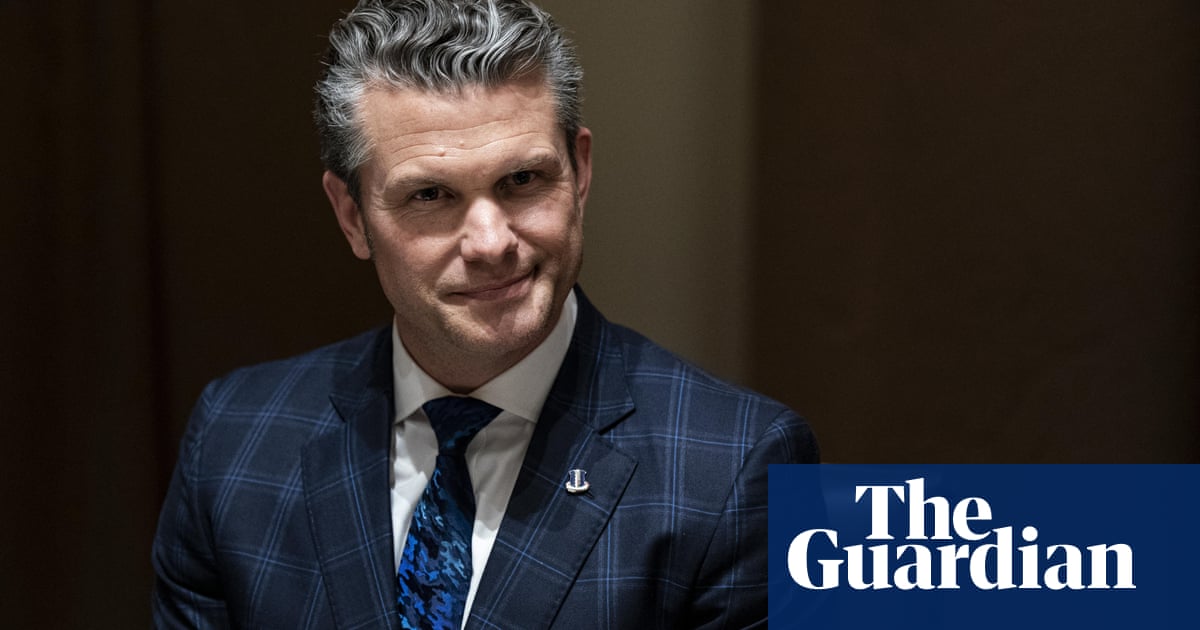Defense secretaryPete Hegseth’s orbit has become consumed by a contentious leak investigation that those inside the Pentagon believe is behind the firing of three senior aides last week, according to five people involved in the situation.
The secretary’s office has been marked for weeks by ugly internal politics between chief of staff Joe Kasper,who left the departmenton Thursday, and the three ousted aides, including senior adviser Dan Caldwell, deputy chief Darin Selnick and chief to the deputy defense secretary Colin Carroll.
The fraught nature of the investigation into the mishandling of classified information also threatens to reopen scrutiny of Hegseth’s ability to manage the Pentagon at a time when he himself shared plans for US strikes against the Houthis in Yemen in asecond Signal group chat that included his wife.
The fallout from the leak investigation has been far-reaching, the people said. Hegseth has dramatically narrowed his inner circle, which now consists of three people: his acting chief of staff, Ricky Buria, until recently his junior military assistant; his lawyer Tim Parlatore; and spokesperson Sean Parnell.
At the center of the leak investigation is an inquiry into the disclosure of an allegedly top-secret document to a reporter. The document outlined flexible options for the US military to reclaim thePanama canalincluding by sending US troops to the area.
The leak was attributed to Caldwell, according to two people familiar with what was briefed to Hegseth and the White House, and it was suggested he did so because he disagreed with the options for military involvement in Donald Trump’s efforts to reclaim the Panama canal.
But Caldwell has strenuously denied leaking to a reporter and told former Fox News host Tucker Carlson in an interview that he believed the leak investigation had been “weaponized”, not least because he had been teased internally for expressing support for military options for the Panama canal.
The two other aides, Selnick and Carroll, were also fired last week although they were not characterized to the White House as the principal targets of the leak investigation, the people said.
Carroll was interviewed by the air force office of special investigations, which has jurisdiction over civilian employees at the defense department, but only on the Monday after all three aides had been fired and only because he had repeatedly sought an interview to clear his name.
The two aides have privately suggested that they were pushed out over the perception they were undercutting Kasper, whom they considered to be ineffective at his job, and were vocal about their complaints.
The Pentagon declined to comment on the reporting about the investigation.
The forcefulness of the denial by Caldwell, coupled with his close relationship with Hegseth, who had brought him on after they worked together at Concerned Veterans for America, has caught numerous senior officials at the White House and the Pentagon off-guard.
And the fraught background to the leak investigation of vicious interpersonal conflicts among Hegseth’s senior aides has left them unable to decipher who and what to believe.
When Hegseth arrived at the Pentagon, it was with the least experience of any of his predecessors. He got the job after impressing Trump in an interview they did during the campaign, and Trump later suggested he lead the Pentagon or the Department of Veterans Affairs.
Hegseth is seen to have been fairly successful through the first six weeks of his tenure, according to four Pentagon officials who interacted with him on a daily basis. He was affable with world leaders and won over skeptical House Freedom caucus members when he briefed them on the Pentagon budget.
But the pressures of running an $800bn-plus agency that oversees more than 2 million troops started to catch up, the officials said, and a series of leaks intensified his distrust of career employees, whom defense officials once hoped could guide him to efficiently run the Pentagon.
The pressures appear to have filtered down to his team, which became increasingly split between a faction that supported Kasper and dismissed his detractors as ambitious colleagues, and a faction behind the three aides who considered Kasper an ineffective manager.
Kasper complained to associates that Caldwell, Selnick and Carroll were trying to force his ouster and about what he saw as attempts to manufacture controversy. In one instance, Carroll sent him an email about possible leaks from the inspector general’s office, which he found to be baseless.
Kasper also told associates that he had allegedly heard Selnick say something to the effect of “the way to get people fired in this place is to get bad headlines on them”, two officials said.
But senior aides at the White House and the Pentagon increasingly started routing requests through Caldwell and Selnick, the officials said, in large part because they were seen to be quicker at getting things done – in a dynamic that appeared to grate on Kasper.
The internal rivalries escalated in the wake of the Panama canal material leak. Hegseth ordered an investigation into some nine leaks, and Kasper suggested that he wanted to bring in the FBI and to conduct polygraph tests on aides, the officials said.
Caldwell advocated for the leak investigations to be narrowed in scope in part because he was against having the FBI rummage through their affairs, according to multiple people he spoke to about the matter – which appears to have been part of the reason he came under suspicion.
The tensions among the former aides have continued since their collective ouster. Carroll has considered filing a defamation suit against Kasper and started making calls on the Monday after he was fired, asking people whether Kasper had ever been seen doing cocaine in a previous job.
Kasper has complained that some of the calls went to his wife and previous clients, asking rhetorically to associates how he would have been able to hold a security clearance and pass regular drug tests. “It’s so egregiously stupid,” Kasper said when reached for comment.
